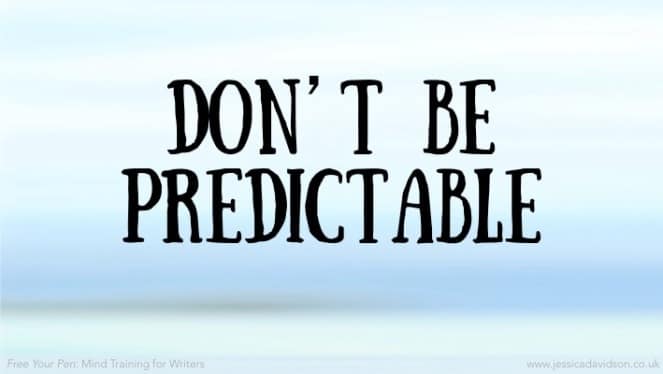I’m listening to NPR report on a series of intense thunderstorm that had passed through the area last week. The broadcaster says that strong winds have knocked down trees and power lines. “More than 10,000 residents were left without power.”
I hate that sentence. It clangs in my head when I hear it.
Do you see why?
If you’re listening to a story about intense thunderstorms knocking down trees and power lines, then the broadcaster says:
“More than 10,000…”
You know what the rest of the sentence is going to be. You know that it’s residents without power.
In storytelling… Hell, in all of writing, and when possible, in all of speaking, don’t construct sentences with obvious endings. Don’t say things that your audience – whether it’s one person or one million people – already knows.
A better sentence – a far superior sentence – is this:
“Power was knocked out to more than 10,000 homes.”
When you construct the sentence this way, there is engagement all the way through. Yes, you know a number is coming when you hear, “Power was knocked out to more than – ” but you don’t know the number. You may not care if the number is 10 or 10,000, but at least you don’t already know what is about to be said.
The words are not predicable. The second half of the sentence is new information for you.
I know this may seem like a bit of a nitpick, but this sentence really did clang in my mind like a cracked church bell. It sounded loud and awful and wrong. Maybe you wouldn’t have noticed it like me, but string enough of these kinds of sentences together and you’ll stop paying attention. You may not understand why or be able to explain why you changed the station, but when people say things that you already know, conversation gets boring. News reports get boring. Storytelling gets boring.
People get boring.
This is why we should avoid cliches whenever possible.
Don’t let the door hit you…
We’re not laughing at you. We’re…
Someone woke up on the wrong…
Every cloud has a…
We know the ends of these sentences. We already know what’s coming. So don’t say these sentences.
Screenwriter Aaron Sorkin once said, “The worst thing a writer can do is say something that the reader already knows.”
It’s asking a lot to monitor your everyday speech using this rubric, but if you did, even a little, your sentences would be come more interesting. Your conversations would become more interesting.
You would become more interesting.
But if not in everyday speech, we can at least be wary of this kind of sentence when writing. Even if our everyday speech is littered with predicable sentences and clauses, our writing need not be the same.
Someone at NPR wrote that news report about thunderstorms knocking out power. Someone wrote that rotten sentence.
That someone can do a lot better.









